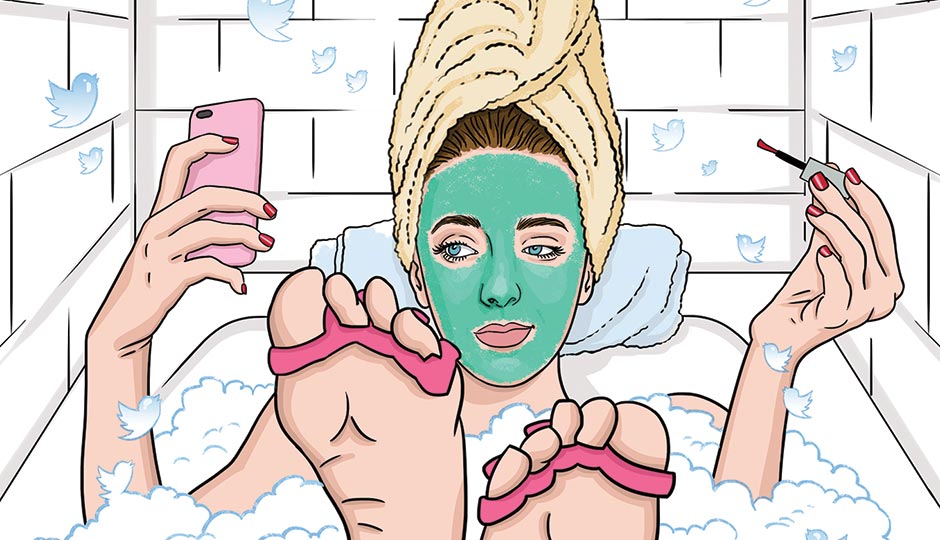Self-care is becoming too oversimplified


As we transition into the colder months, I’ve noticed an increase in the amount of Buzzfeed articles and Tumblr posts that are shared about self-care.
Ways that people can tackle the winter blues and combat their mental health issues are commonly reduced down to beauty items and junk food that you can buy at your local Walmart.
Self-care has become an oversimplified concept that is portrayed to be a one-size-fits-all treatment for anything from a bad day, to clinical depression. Many of the things I read, though well-intentioned, completely miss the mark for what the term can mean for the people they’re trying to reach.
Although there are days where having a bubble bath courtesy of a stress-reducing Lush bath bomb and a drugstore face mask will make me feel better, they aren’t magical cure-alls to my mental health problems. They temporarily iron out the small, artificial creases from a bad day, but they don’t erase the underlying issues that I always carry with me.
Understandably, self-care will be different for every person. No one is exactly the same and how we cope and look after ourselves, especially mentally, is going to depend on the individual and what they’re experiencing.
Posts that merely encourage you to stay in all day on an unmade bed, cancel plan after plan, watch Disney movies and eat like crap aren’t the only ways self-care should be promoted.
Promoting a positive outlook regarding mental health care is essential, but it should not be lost in a sea of shallow practices that barely service the problem to begin with.
Realistically, self-care isn’t a picturesque Pinterest post that’s worthy of soft lighting, a nauseating caption and some fairy lights. It can be extremely difficult, tiring and mundane, at least to some extent.
What should be added to these trite lists of Amazon products to buy in times of mental duress and candles to light when times are tough, are the not so pretty aspects of looking after yourself mentally that may not seem entirely noteworthy or easy to discuss.
For some, that may mean regularly taking prescription medication. For others, like me, it’s forcing myself to simply get out of bed in the morning and leave the house. It’s not letting your laundry pile up into a disgusting heap, going to school when you don’t want to, cutting toxic people out of your life who cause you nothing but pain and stress, talking to therapists, or eating a meal when you’d rather skip it entirely.
It isn’t always an option to simply shut off and avoid responsibility. While taking time outs for your mental well-being is crucial when you need it, it’s important to remember that not everyone has that luxury and it isn’t a realistic option to resort to all the time.
Maintaining some level of stability in everyday life is challenging enough, but it’s made all the more difficult when the basic understanding that’s portrayed by popular media platforms about mental health care is a luxurious spa day and memes about cancelling plans.
I am by no means the foremost authority for deciding how to properly label self-care. Making consciously thought out decisions regarding your mental health is what is most important and there shouldn’t be a disconnect between that and avoiding the problem all together.
Promoting a positive outlook regarding mental health care is essential, but it should not be lost in a sea of shallow practices that barely service the problem to begin with.
Self-care can be an exhaustive labour of effort and resources. It’s not something that can just be diminished to a “treat yourself” shopping trip or an ordered-in pizza. Not everyone functions the same way, and it’s destructive to rest on the assumption that we would care for ourselves mentally with methods confined to a few points and nothing more.


